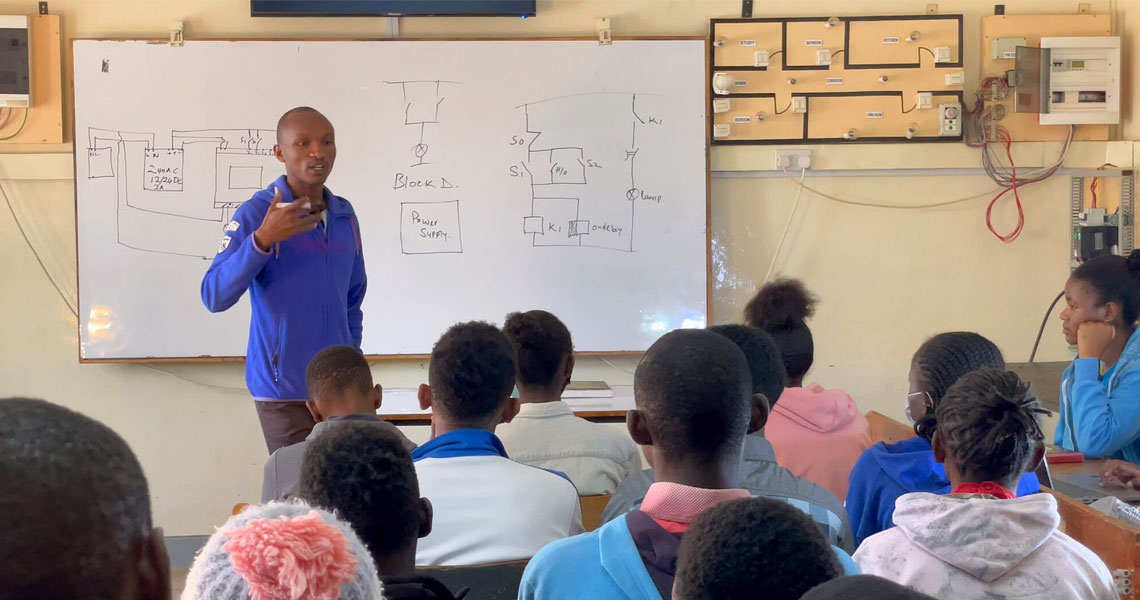The St. Kizito Vocational Training Institute is a training institute of the Catholic Archdiocese of Nairobi (Kenya) and an Institute of Technology & Examination Centre, mainly oriented to the less privileged youth, which offers a holistic education and provides technical, entrepreneurial, and vocational skills always in line with emerging technologies and new ways of training, with the aim of enabling students to secure employment and become self-sufficient.
History and mission
The St. Kizito Vocational Training Institute was founded by Fr Valerio Valeri and built by AVSI in 1986, in Githurai Kimbo, 20.8 kilometers from Nairobi.
Nairobi was chosen as the location because of its problems and contradictions caused by an unbalanced and vertiginous population growth and consequent unemployment challenges, especially among young people. The problems of youth are indeed very serious in the area: thousands of children leave school before they complete their studies, and while few, even if with a lot of difficulties, find a job, many stay unemployed. The problem is even greater for the youth coming from the outskirts of the city, who, having completed their primary education, cannot continue any further and end up with no qualifications at all. For them, the possibility of employment and the chance of a dignified life becomes rather precarious.
In this socio-economic context, the primary needs facing the youth living in Nairobi are linked to the opportunity of adequate professional training, the identification of job opportunities and the spread amongst young individuals of sentiments of self-esteem and a spirit of solidarity at work.
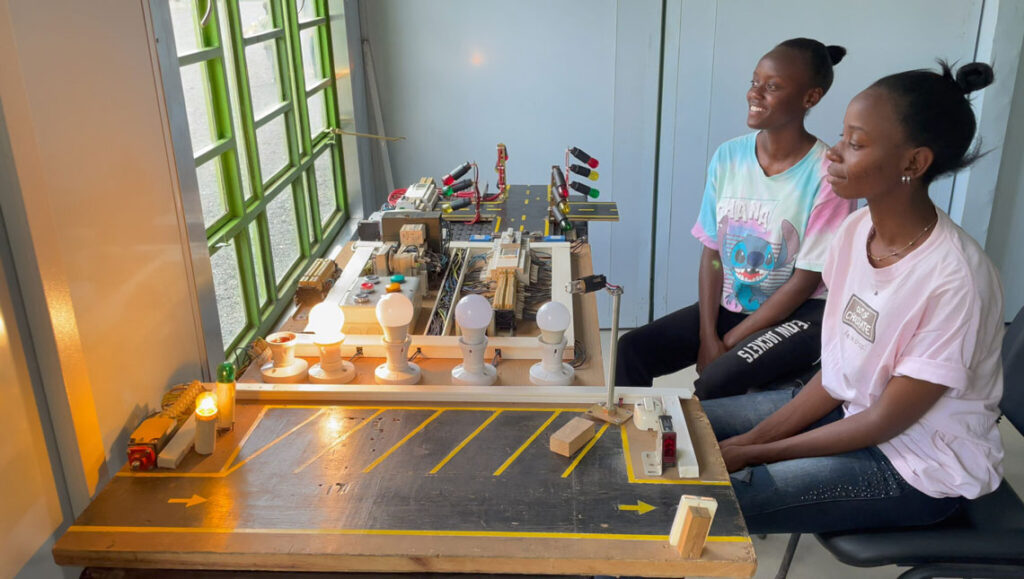
The St. Kizito Vocational Training Institute was opened in 1994 with the aim to deal with such problems by providing an educative environment where students, management and staff acknowledged their value, dignity, and talents through communitarian life, acquiring suitable skills aligned with the job market and emerging technologies in partnership with relevant companies and organizations.
When it was inaugurated, the school offered 3 courses to 60 students. Today, there are 10 courses, including plumbing, catering, electronics, and mechanics, and 750 students annually coming from different countries.
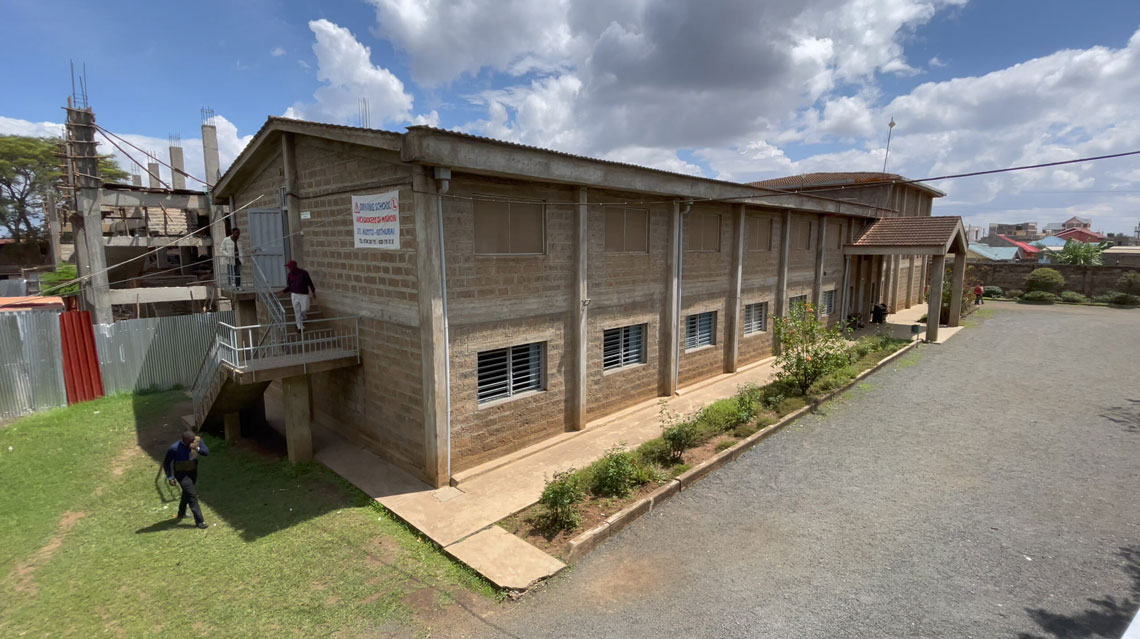
For St. Kizito’s community, education means to introduce the youth into reality in all its factors; for this reason, reality is the point of reference of the work in the school. In St. Kizito VTI, through the relationship with the teacher, the young person becomes aware of his personal reality, and he is introduced to the knowledge of the world around him. This relationship provokes and leads to the development of the inborn potentialities of the person in a way that is both rich and unique.
Esharelife Foundation’s Chairman, Prof Maurizio Bragagni OBE, and Trustee, Mr Enrico Scambia, visited Nairobi, Kenya, to celebrate the 50th anniversary of the AVSI Foundation. On the occasion, they visited St. Kizito Institute, where the Headmaster George Kibe explained, “We give students skills that would help them to discover themselves. The difference between our school compared with other ones is that here they have a lot of practical experience, so our students have an advantage looking at what they have done in school, and they leave here knowing how to do work.”
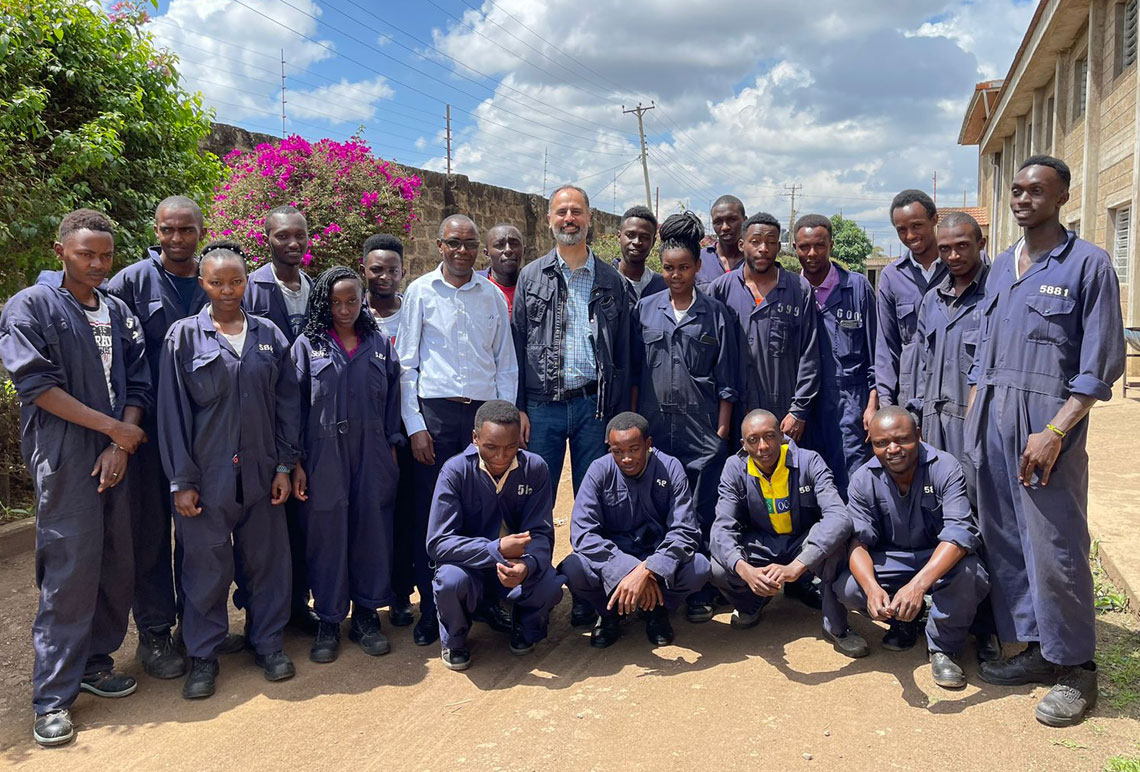
Impact
Esharelife Foundation’s commitment to education is reflected in its support of projects such as the St. Kizito Vocational Training Institute. Indeed, through its partnership with AVSI in Kenya, Esharelife is able to support 50 children and their families from diverse backgrounds to access quality education and vocational training in St. Kizito Institute.
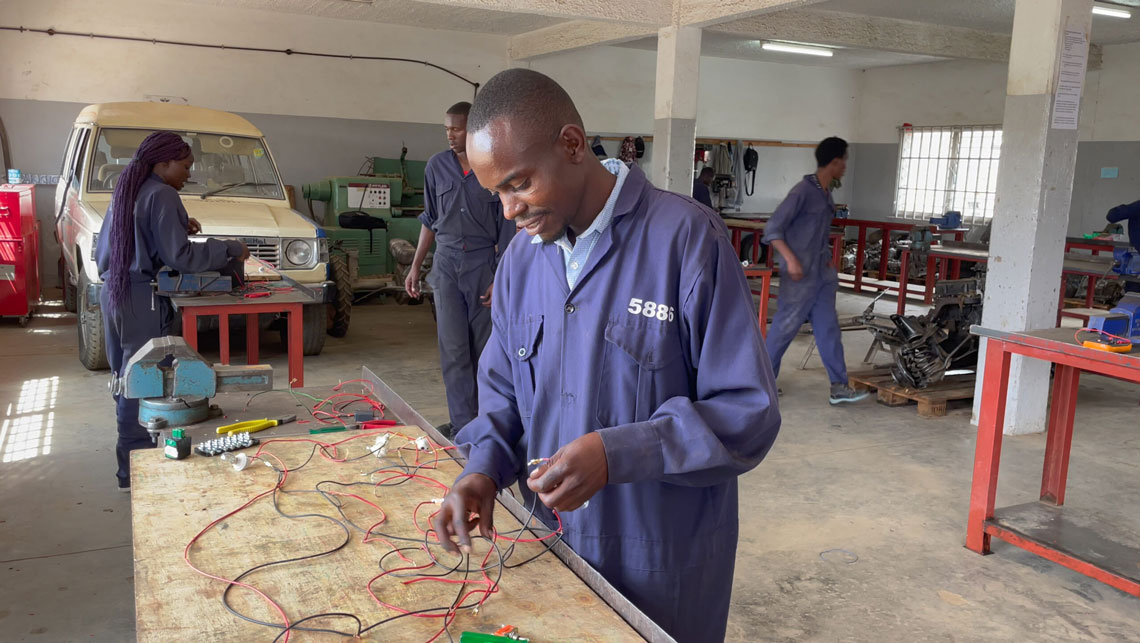
In the words of the Deputy Headmaster Patrick Njoroge, the big impact that St. Kizito Institute has in making Kenya a better economy and in positively impacting the lives of the young people, is reflected in the stories of those students that decide to go back to the school as teachers, after graduating as students. This is the case for Frederick Hongo, a former student of St. Kizito, whose passion for electrical work now inspires new students, or Ever, who thanks to a scholarship specialized in carpentry and now has her own company that produces cabinets.
Indeed, thousands of former students are now working in many different factories, garages, enterprises and offices, or self-employed. Many of them have great responsibilities in their places of work and all of them are very grateful for what they have learnt in St Kizito. In fact, St Kizito is not only concerned about technical training of students, but also to educate the person in all his/her dimensions. This human formation is realized through the technical training and the daily human relationships, apt to enabling students not only to secure employment but also to become self-sufficient in every aspect of their life.

